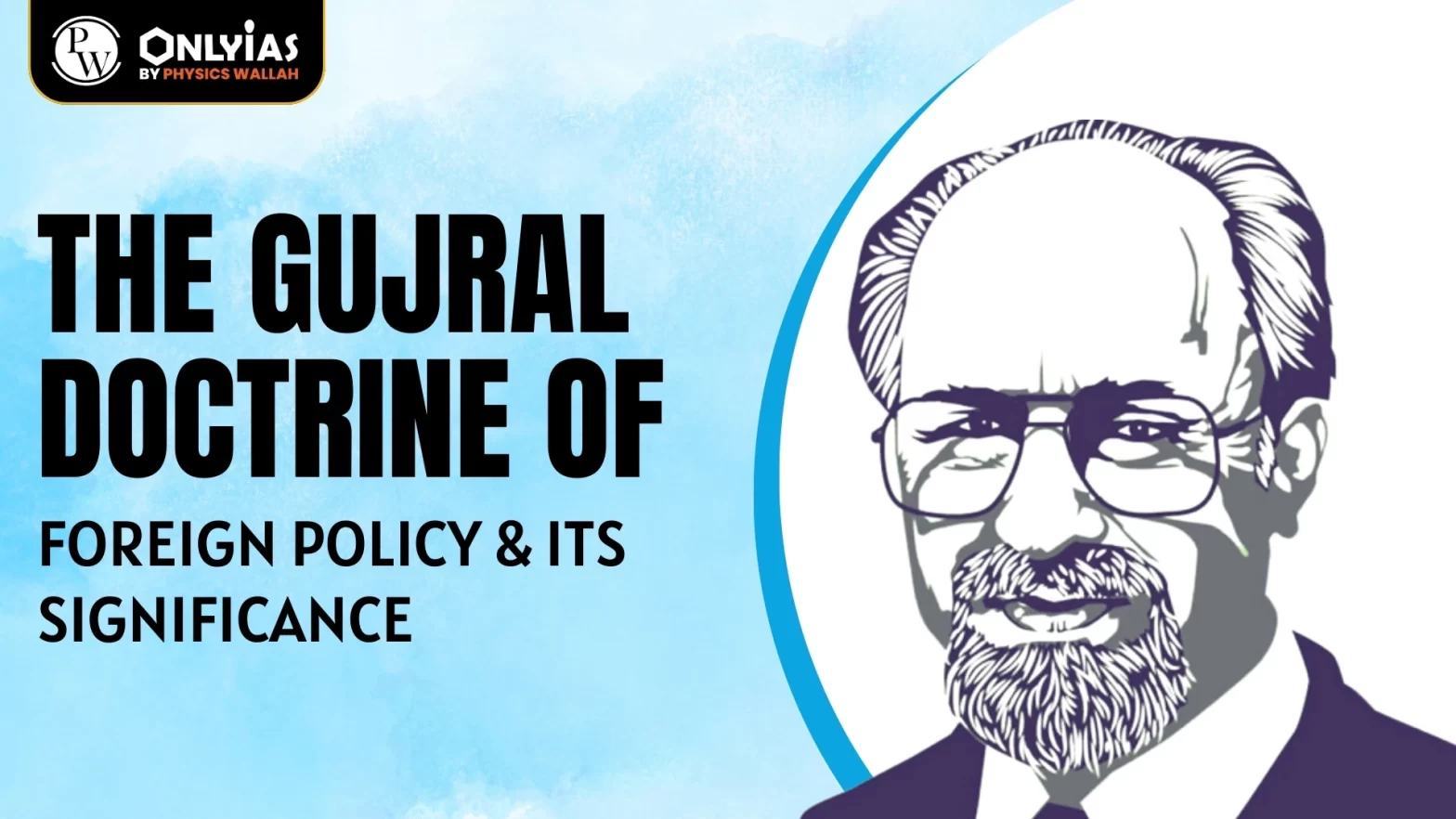Context: This article is based on an Editorial “IK Gujral’s death anniversary: What was the Gujral Doctrine of foreign policy, its significance” which was published in the Hindu. This year, November 30 marks the 11th death anniversary of IK Gujaral, the 12th Prime Minister of India. He is the only Prime Minister with a foreign policy approach named after him — the Gujral Doctrine.
| Relevancy for Mains: IK Gujral and Gujral Doctrine, Foreign Policy Of India, Southeast Asia, India, and its neighbors.
Relevancy for Mains: Analysing IK Gujral’s foreign policy legacy, the Gujral Doctrine’s principles, successes, and criticisms in shaping India’s relations with neighbors. |
About IK Gujaral
- Birth: Gujral was born in Jhelum in undivided Punjab, and came to India after the Partition.
- Freedom Struggle: The son of freedom fighters, he had been imprisoned himself during the freedom struggle.
- In Government Positions: Before becoming the Prime Minister, he had held several Cabinet positions, including the External Affairs Minister portfolio twice. During the Emergency period, he was Information Minister.
- Strict Attitude: In the arena of international relations, he is known for his comment on Britain. He described Britain as “a third-rate power nursing delusions of the grandeur of its past.”
- Achievement: His long years in politics had been marked by unfailing politeness, courtesy, and a firm attitude.
What is the Gujral Doctrine?
- Background: During Gujral’s second tenure as External Affairs Minister, he mapped out his approach towards India’s neighbors, which later came to be known as the Gujral Doctrine.
- Principles Involved: This consisted of five basic principles:
- No Reciprocity with Neighbours: Like Nepal, Bangladesh, Bhutan, Maldives, and Sri Lanka, India does not ask for reciprocity but gives all that it can in good faith and trust.
- Exclusion of Pakistan: Gujral didn’t name Pakistan under this no reciprocity countries list. However, he adopted the same approach to a degree.
- Non-use of Territory against the Interest of Others: No South Asian country will allow its territory to be used against the interest of another country in the region.
- Non-Interference: None will interfere in the internal affairs of another.
- Respect: All South Asian countries must respect each other’s territorial integrity and sovereignty.
- Peaceful Relations: They will settle all their disputes through peaceful bilateral negotiations.
- Basis of the Gujral Doctrine: It was based on the understanding that India has a huge size and population, which makes it a major player in Southeast Asia. For better position and prestige, India needs an adopt a non-domineering attitude towards its smaller neighbors.
What were the successes of the Gujral Doctrine in shaping India’s relations with its neighbors?
- Trust and Cooperation: It helped to strengthen trust and cooperation in India’s neighborhood.
- Legacy: Gujral’s successors continued to follow the same approach, despite having different ideologies.
- Examples of Successes:
- A 30-year Treaty with Bangladesh: Gujral’s policy of non-reciprocal accommodation led to the signing of a 30-year treaty between India and Bangladesh on December 12, 1996.
- Mahakali treaty with Nepal: He even showed his willingness to revise the controversial Mahakali treaty with Nepal which was received well in Nepal.
- Pakistan: With Pakistan, Gujral kept talks going. He met with his Pakistani counterpart Nawaz Sharif in Male in 1997.
What are criticisms of the Gujral Doctrine?
- Failing to convince the foreign affairs bureaucracy to follow the doctrine wholeheartedly.
- Too soft on Pakistan and leaving India vulnerable to the threats, including the terror attacks.
- Pakistan sees the doctrine as India’s attempt to isolate Pakistan.
Conclusion:
Gujral Doctrine still holds a significant position and its principles must be valued and followed in order to build better India’s position and relations with its neighbors.
![]() 2 Dec 2023
2 Dec 2023
